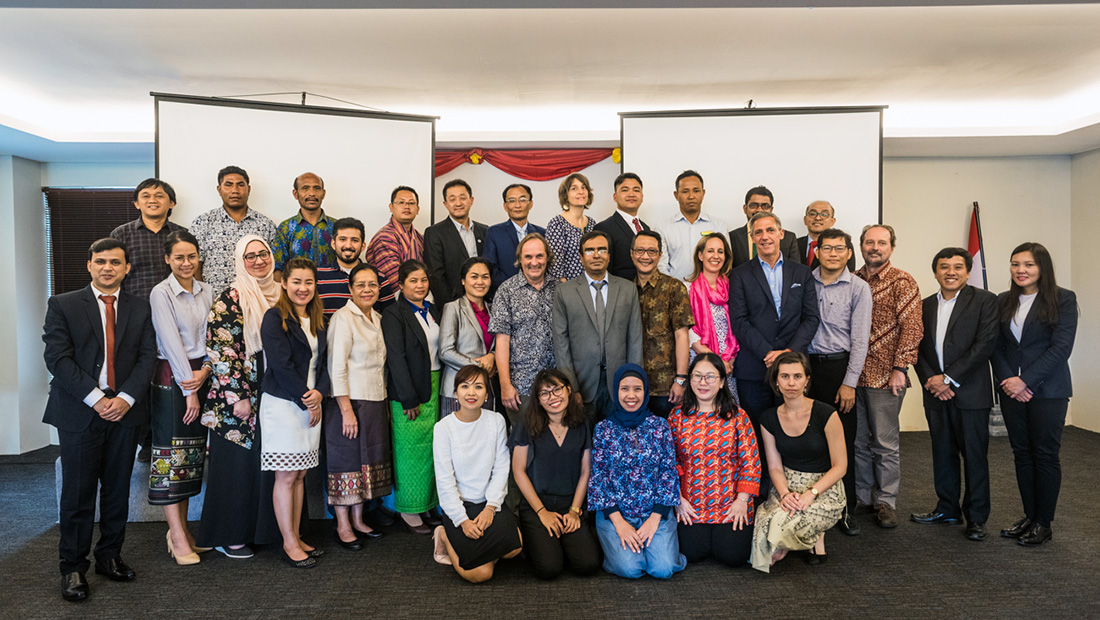ASEAN officials and producers join ARISE+ IPR at AsiaGI 2019
IP officials and producers from Cambodia, Lao PDR and Myanmar learned about geographical indications (GIs) and their benefits at the AsiaGI 2019 training event in Bali, Indonesia, on 25-30 March, with the support of ARISE+ IPR.
In opening remarks, EU Delegation to Indonesia Head of Trade Raffaele Quarto acknowledged the potential for GI products in Southeast Asia. “The EU supports the protection of GIs in ASEAN, a region famous for its richness in agricultural products and indigenous knowledge,” he said.
Participants gained insights on GI concepts and definitions, legal and institutional frameworks, GI protection systems in several ASEAN Member States and abroad, the notion and role of collective management bodies, quality controls, and marketing and promotion strategies, among other aspects during the one-week training. The training was reinforced with case studies and a field visit to a local produce market and the facilities of the Kintamani Coffee GI.
The participants were highly engaged with the training, with producers raising questions and demonstrating the unique characteristics in relation to their specific GI product. Member of the Ywar Ngan Coffee Association in Myanmar, producer Ngwe Tun, attended AsiaGI with ARISE+ IPR support and anticipates many benefits from a future GI protection system in his home country. “Participation in the training will be very useful for the initiation of our GI application for coffee. Not only for coffee, we have so many potential products in Myanmar,” he commented. Attendees appreciated the advice from both the GI experts on hand as well as the experience shared from producers from other participating countries.
Geographical indications are signs which identify a product as originating in a particular region or locality, where a given quality, reputation or other characteristic of the product is essentially attributable to its geographical origin. GIs are considered a useful tool for economic growth and sustainable development, particularly in rural areas. They help foster new markets by directing consumers to identify the distinct qualities of local products, ensuring certain quality standards are met by producers, and typically apply environmentally-sound practices.
This is the fourth AsiaGI instalment, following successful training events in Bangkok, Thailand, in 2016 and Kampot, Cambodia, in 2017 and 2018. The event was organised by CIRAD, the French Agricultural Research Centre for International Development, and REDD, a training and consultancy organisation based in Switzerland that supports sustainable agriculture through engagement with food producers and consumers.

